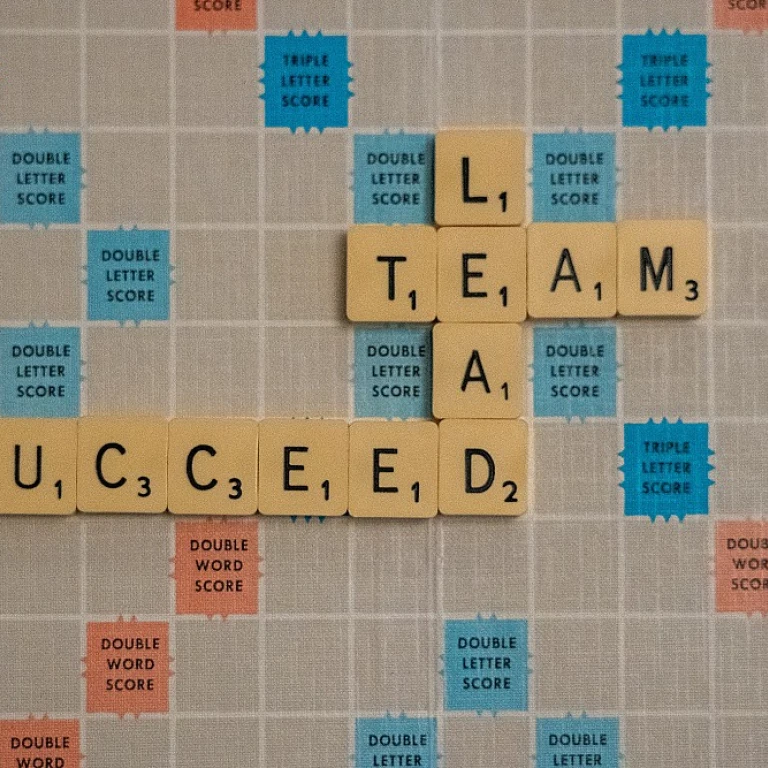Understanding the Purpose of a Career Transition Cover Letter
The Why Behind a Career Transition Cover Letter
When it comes to changing careers, the cover letter becomes more than just a formality. It serves as a one-page snapshot that highlights your journey, skills, and interests that don't always fit neatly into a resume grid. The crux of the matter is to show hiring managers why your career change makes sense and why you’re excited to join a new industry. Your cover letter is a chance to clarify the change, demonstrate transferable skills, and address any gaps in experience.
Why do hiring managers care so much about your motivation for a career change? It’s simple. They want to make sure any new recruit will integrate seamlessly into their team and stay committed. By thoughtfully outlining your transition, you help ease any reservations employers might have about your job switcher status.
Think of your cover letter as a bridge. It links your past roles and skills with your new career interests. Done right, it can spotlight your proficiency not as a limitation, but as an asset ready to benefit a new company in a fresh way.
We’ll dive into identifying your strengths and structuring your letter to keep both the company and the role in focus. As you craft your transition cover letter, keep in mind that honest communication can be your best tool in impressing a recruiter. After all, what captivates every hiring manager is a genuine interest and a willingness to learn.
Identifying Transferable Skills and Experiences
Spotting Skills You Can Bring on Board
Identifying transferable skills and experiences is a vital step when making a career change. Transferable skills are those abilities and knowledge you've gathered in your previous roles that can be valuable in a different job or industry. Here’s a rundown on identifying those skills you might not have realized were gold for your new path.
- Communication: Whether you're coordinating teams or negotiating with vendors, your ability to communicate effectively is a win for any company.
- Problem Solving: Think about times you've overcome challenges—employers value those who can think on their feet and offer solutions.
- Leadership: Leading projects, people, or processes in your old job? That's a key indicator of leadership capabilities.
- Analytical Skills: Data analysis isn’t just for scientists. Looking at numbers, reports, or trends is a skill needed across sectors.
- Team Collaboration: Working well in a team environment shows employers you're a team player who can align with company culture.
Consider these skills carefully. When you jot them down, you're crafting a story about yourself that recruiters - yep, even those picky hiring managers - can't ignore. Remember, it's about aligning what you know with what they need. This approach can help to trim down the anxiety of a career shift.
In an example role like that of a product manager, those communication and leadership skills stand out to guide teams and initiatives effectively. By translating your past experiences meaningfully, you show potential employers why you are an exciting opportunity for their team. Therefore, it’s not just about what you’ve done but about how you can bring that experience to new challenges. So polish up your resume and cover letters by aligning those experiences with the prospective position.
While you're looking through your resume for skills and experiences, pay attention to what makes you stand out. How can you convince the hiring managers you have a genuine interest and the capability to contribute to their company's success? Tailor each cover letter to show that booming excitement as you step toward this new chapter in your career.
Whether you're eyeing a job in a new field or are in the process of changing careers, clearly highlighting your transferable skills could be your ticket to success. When put into your cover letter, these skills will resonate with employers and hiring managers, making your application hard to resist.
Stay tuned, and let’s drill into how you can shape your cover letter to hit all the right notes.
Structuring Your Cover Letter for Maximum Impact
Creating a Strong Opening
When you're writing a cover letter for a career change, the opening lines are like a first handshake. They need to convey enthusiasm and a genuine interest in the new role and company. Start by mentioning the position you're applying for and where you found the job listing. This helps the hiring manager connect your application to the specific job. An example could be, "I am excited to apply for the Product Manager position at XYZ Company, as advertised on your careers page."
Showcasing Transferable Skills
It's crucial to highlight the skills and experiences that are relevant to the new industry. Think about the skills that you've honed in your previous roles that can be applied to the new job. For instance, if you've worked in data analysis, emphasize your problem-solving abilities and how they can benefit the team in your new role. This is where you link your past experience to the job you're aiming for, making it clear why you're a strong candidate despite the career change.
Aligning with Company Goals
Research the company and understand its goals and values. Align your cover letter with these aspects to show that you're not just interested in any job, but in this particular company. Mentioning specific projects or initiatives that excite you can demonstrate your genuine interest. For example, "I am particularly drawn to XYZ Company's commitment to innovation and am eager to contribute to your team with my background in creative problem solving and project management."
Concluding with Confidence
Wrap up your cover letter by reiterating your enthusiasm for the position and expressing your eagerness to discuss how your skills and experiences can benefit the company. A confident closing can leave a lasting impression, such as, "I look forward to the opportunity to discuss how my skills and experiences align with the goals of XYZ Company." Remember, your cover letter is your chance to make a compelling case for why you're the right fit for the job, even if you're changing careers.
For more insights on how to prepare for interviews and elevate your job search strategies, check out this guide on interview preparation.
Tailoring Your Message to the New Industry
Personalize Your Message for Success
When switching careers, it's essential to pivot your communication to resonate with the new industry's vibe. Your career change cover letter isn't just a document; it's a chance to showcase how your past experiences and skills align with your target role. Here's how you can make it work:
Start by showing genuine interest in the company and the role. Hiring managers value authenticity, so be upfront about what excites you about this new opportunity. Reflect on what draws you to the company and how you admire its work or products, perhaps mentioning specific projects or achievements that resonate with your values.
Talk about transferable skills clearly and convincingly. For example, if you’re moving into a digital product manager role, highlight your data analysis and problem-solving skills from previous jobs. These skills may have been developed in different contexts but are highly relevant and valuable in this new setting.
Acknowledge gaps in experience head-on. While enthusiasm is key, it's crucial to address any areas where your resume might not line up perfectly with the job description. Explain how your unique background brings fresh perspectives or innovative approaches to the table, adding depth to the team's existing skill set.
Don't shy away from sharing achievements, even if they're outside the direct industry match. For instance, leverage stories that highlight leadership, collaboration in cross-functional teams, or successful project outcomes. These experiences illustrate your adaptability and readiness to embrace the change.
Remember, the goal is to connect your past to your future. A well-crafted cover letter should serve as a bridge between what you’ve done and what you aspire to achieve in this new career path. Tailoring your message to show this connection helps convince hiring managers that you’re the right fit for the job, even if you’re coming from another field.
Addressing Potential Concerns of Employers
Addressing Employers' Concerns Head-On
When you're looking to make a career change, one thing's for sure: hiring managers will have questions. Their main concern? Whether you have what it takes to handle the new role and fit into the company culture. How you address these worries in your cover letter can make or break your chances of landing that interview.
So, how do you put their minds at ease? Let's tackle this head-on.
First, it’s important to recognize potential issues so you can craft a solid response. Are they likely to question your understanding of the new industry, or perhaps your skills? Be proactive. Acknowledge where your career history might not align perfectly with the job description.
### Acknowledging The Gap
Openly discussing the gap in experience is essential. Here's the thing: honesty shows confidence. You don't want to sound unsure or overly defensive. Instead, convey genuine interest in the new industry and emphasize your transferable skills.
### Highlighting Transferable Skills
Make sure to spotlight skills and experiences from past jobs that will translate well into the new role. If you’re moving into a data analysis position, for example, mention your problem solving abilities and any hands-on data work you've done. Back it up with specifics, like how you improved efficiencies in your team or spearheaded a successful project.
### Aligning with Company Goals
Research the company thoroughly. Show that your values and goals align with theirs. Hiring managers appreciate when candidates express a genuine interest in the company’s mission. Drop a sentence or two about how your skills and experiences uniquely qualify you to contribute positively to their objectives.
### Positivity and Enthusiasm
End your cover letter on a positive note, expressing excitement about the opportunity and confidence in your ability to bring value to the team. Your enthusiasm can help mitigate concerns about your unconventional career path.
Remember, hiring managers are always on the lookout for candidates with sincere motivations. By addressing their concerns directly, you help paint a picture of yourself as an adaptable, resourceful person ready to contribute to the success of the company.
Even if they have reservations about your lack of direct experience, your cover letter should convince them of your potential to flourish in a new role. Keep in mind, you're not alone in the world of changing careers. Bringing your story and skills to the forefront can often be the appeal you need to turn potential hesitations into opportunities.
Examples of Successful Career Transition Cover Letters
Spot-on Examples of Cover Letters for Career Transitions
Navigating the world of career changes can be a head-scratcher, but a solid cover letter can be a game-changer. Here, we explore some standout examples that'll give you the inspiration needed to write your own.
Example 1: Data Analyst to Product Manager
*Example Dear Hiring Manager,*
Kicking off with a cover letter from a former data analyst transitioning to a product manager role, you see how relying on transferable skills and relevant experiences make a strong case. The candidate highlights their knack for data analysis and problem-solving, crucial for product management. By emphasizing excitement for the opportunity and showcasing genuine interest in the company's mission, this cover letter makes its mark.
Example 2: Teacher to Corporate Trainer
Switching roles from education to corporate training is no small feat, yet this example deftly illustrates the seamless link between skills honed in teaching — communication, team leadership, and curriculum creation — to the new corporate domain. Addressing possible employer concerns, it underscores a proactive approach to industry change, a willingness to learn, and an eagerness to contribute to the team's success.
Example 3: Marketing Coordinator to UX Designer
In another instance, a marketing coordinator aspires to join a company as a UX designer. This shift highlights transferable skills like user data interpretation and a talent for crafting user experiences. The writer emphasizes their unique edge by discussing previous roles requiring creativity and collaboration – vital traits for a UX designer, making them a versatile candidate.
These examples, drawn from real-life scenarios, show that a well-crafted cover letter can be instrumental in bridging the gap between old and new career paths. Remember to infuse your narrative with enthusiasm and clarity, painting a vivid picture of why you're the right fit for that dream job.








